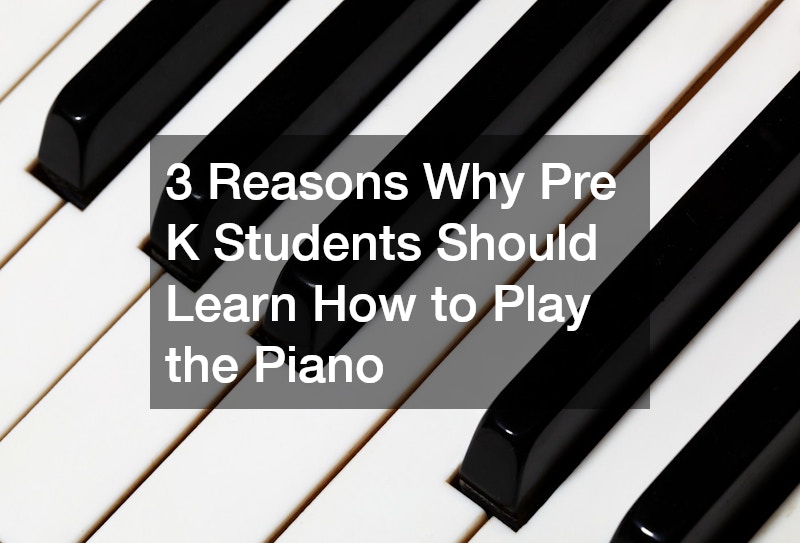
3 Reasons Why Pre K Students Should Learn How to Play the Piano

Early childhood is a critical time for cognitive, emotional, and social development. Among various extracurricular activities, learning to play the piano provides a rich, multifaceted experience that can benefit young ones in numerous ways. If you’re wondering why you should schedule piano lessons for your child, then continue reading. Here are some compelling reasons why Pre K students should consider learning to play the piano.
1. Enhances Brain Function
First, playing the piano enhances brain function in young children. According to Health News, a child’s formative years are from infancy to age 8. During this period, the brain is exceptionally receptive to new information and experiences. Learning to play the piano can improve hand-eye coordination, fine motor skills, and spatial-temporal reasoning, all of which contribute to advanced cognitive development.
2. Develops Consistency
These lessons can help little ones develop a sense of discipline and perseverance. Mastering the piano requires consistent practice and dedication, which means children must commit to regular practice sessions and steadily work towards their musical goals. This process of setting small, achievable goals and gradually building upon them teaches children the value of hard work and persistence. As they practice and improve, they experience the satisfaction of reaching their milestones, reinforcing the idea that effort and dedication lead to success. These character traits are not only essential for academic success but also for lifelong personal development.
3. Allows Emotional Expression
Playing the piano introduces children to the world of music, which can be a powerful emotional outlet. Music provides a means of expression that words sometimes cannot. Young children can learn to convey their feelings through the melodies and rhythms, promoting emotional well-being and mental health. Additionally, familiarity with music from an early age can inspire a lifelong appreciation for the arts.
Learning to play the piano offers Pre K students a host of developmental advantages, from cognitive enhancements to emotional growth. The skills and traits cultivated through piano practice can set a strong foundation for their academic and personal lives. Investing in lessons for young children is an investment in their holistic development, making it a worthwhile endeavor for parents and educators alike.



